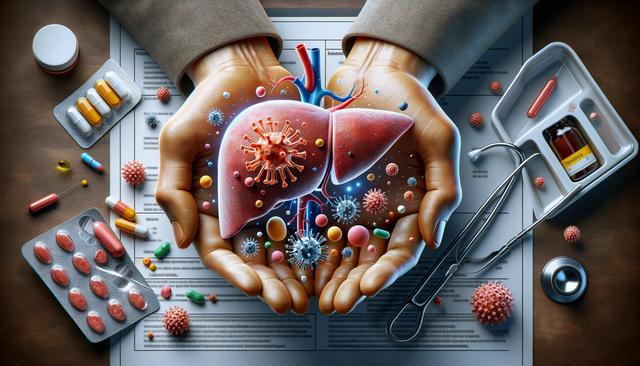Early Signs of Hepatitis C and Treatment Options
Understanding Early Symptoms of Hepatitis C
Hepatitis C is a liver infection caused by the Hepatitis C virus (HCV). It often begins with subtle signs that can be easily overlooked, making early detection crucial. Many individuals with Hepatitis C may not experience noticeable symptoms during the initial stages. However, some early symptoms of Hepatitis C can include fatigue, mild abdominal pain, and flu-like symptoms such as fever and joint pain. These symptoms are often nonspecific and can be mistaken for other common illnesses, which is why it is important to be vigilant if you suspect exposure to the virus. Recognizing these early symptoms can lead to timely diagnosis and management, potentially preventing the progression to more severe liver damage.

Symptoms of Chronic Hepatitis C
As Hepatitis C progresses, it can transition into a chronic condition if not treated. Chronic Hepatitis C may take years to manifest more severe symptoms, which can complicate the disease’s management. Symptoms of chronic Hepatitis C often include persistent fatigue, jaundice (yellowing of the skin and eyes), dark urine, and unexplained weight loss. The liver can become severely damaged over time, leading to cirrhosis or liver cancer. Understanding these symptoms is vital for individuals who may have been exposed to HCV, as chronic Hepatitis C requires ongoing medical attention to manage symptoms and prevent further liver damage.
Why Early Detection Matters
Early detection of Hepatitis C is essential for several reasons. Firstly, it allows for earlier intervention, which can significantly reduce the risk of liver damage. Early detection also increases the chances of successful treatment, potentially leading to a cure. Furthermore, knowing one’s Hepatitis C status can help prevent the spread of the virus to others. Testing is especially important for individuals at higher risk, such as those who have used intravenous drugs, received blood transfusions before 1992, or have been exposed to infected blood. Regular screenings and awareness of the early symptoms of Hepatitis C play a crucial role in controlling the spread of the virus and improving health outcomes.
Treatment and Management Options
Once diagnosed, there are several treatment and management options available for Hepatitis C. The primary goal of treatment is to eradicate the virus from the body, which can be achieved with antiviral medications. These medications have evolved significantly over the years, with newer options offering shorter treatment durations and fewer side effects. It is important for individuals with Hepatitis C to work closely with their healthcare providers to determine the most suitable treatment plan. In addition to medication, lifestyle changes such as maintaining a healthy diet, avoiding alcohol, and regular exercise can support liver health and improve overall well-being.
Living with Hepatitis C
Living with Hepatitis C can be challenging, but with the right approach, individuals can lead fulfilling lives. Education and support are key components in managing the condition. Joining support groups and staying informed about the latest treatment advancements can empower individuals and help them cope with the emotional and physical aspects of the disease. Regular medical check-ups and monitoring liver function are crucial for those living with chronic Hepatitis C. By understanding the symptoms of chronic Hepatitis C and adhering to treatment plans, individuals can manage the condition effectively and minimize its impact on their lives.
